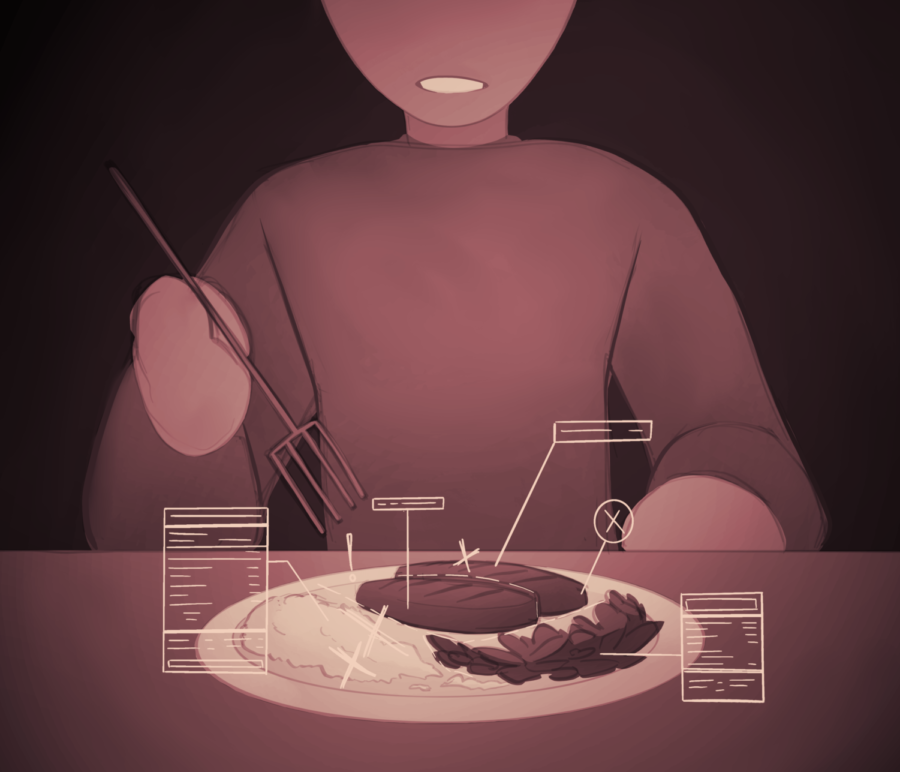Opinion | Not a medical diagnosis but still a mental demand: walking the line between eating disorders and disordered eating
January 27, 2023
It’s awkward when you’re sitting down to eat with your friends and only one or maybe two other people also have a full meal, while everyone else has snacks or nothing at all. Why did I pack such a big lunch? you think. It’s uncomfortable to be one of the only ones eating, and it feels like you’re the weird one for choosing to eat when the majority are choosing not to. Then, because you feel bad about eating, when you go to eat dinner with your family, they question why you’re playing with your food instead of ingesting it.
“Oh, I’m just not hungry,” you say. A lie. If I eat as much now as I had for lunch, I’ll get fat. “I had a big lunch.”
This cycle of emotions surrounding food is one that I’m all too familiar with. Why bother eating now when I could wait a couple hours and just eat then; why does my body still look like this, even after I’ve reduced my usual food intake for months now; I’m going to quietly extract the scale from its spot in the bathroom and weigh myself as often as I can. But every cycle has to start somewhere.
According to the National Library of Medicine, mental disorders and illnesses (including eating disorders) are hereditary; humans learn through observing others and adopting their behaviors. Whether it stems from family—talking about their weight, asking if you really need that third piece of bread with butter or commenting negatively on the way you look in an outfit you liked—or peers—laughing about “forgetting” a lunch again, making fun of your portion sizes or remarking that they would be drowning in a sweatshirt as big as yours—disordered eating is not something that develops out of the blue.
Even more than those outside influences, disordered eating affects all genders for various reasons. For cisgender women, they’re taught that they should look a certain way, but should also expect sexualization by men from a young age in looking like that. For transgender women, gaining weight helps bring their vision for how their body should look to reality, but not everyone gains weight when they want to, even with careful consumption. For cisgender men, the media says that they have to be tall and muscular—but not thin or chubby—to be attractive. For transgender men, losing weight can help remove certain fat stores on their bodies and help bring their vision for how their body should look to reality.
For everyone outside and in between the gender binary, the beliefs about weight and body appearance were instilled in us as children—while most of us were still presenting as our assigned-at-birth gender, and thus taught the value of what gender-specific weight should look like—and those expectations never went away. These teachings, for me at least, were exemplified when we were stuck at home during the pandemic. We were around those very same people who had potentially made us start thinking about food in a negative light, and we were constantly, inescapably scrutinized for every morsel we put in our mouths.
And where did our disordered eating come from? Parents, peers, genes, the media, etc. My relationship with food has gotten notably better since I stopped caring about unattainable beauty standards, knowing that no matter the number on the scale, there will be people who care for me. I know it’s a little cliché, but recovery is sometimes a cheesy endeavor. Know this though: you’re not alone in your struggles, and there is always someone to talk to.









